The Best Travel-Planning Hacks You Need to Know Right Now

Frequent travelers know a lot of hacks that, over time, stop being entirely true (like the old rule that you should book flights on a Tuesday afternoon). However, there are some great, everlasting travel-planning hacks that are still excellent options to save you time, money, and unforeseen mishaps or headaches.
From booking your flights and hotel the right way to making sure you can get there and back with no issues (and even some extra room in your suitcase!), here are some of the best travel-planning hacks you absolutely need to know right now. And for more, don’t miss The 10 Best U.S. Cities Every Traveler Needs to See.
1
Use a flight price tracker before buying.
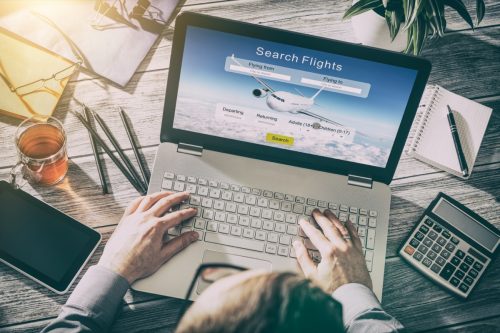
Most travelers have a way to search for good airfare deals on their own, even though they don’t necessarily have to. In fact, in 2015, airfare monitoring site Hopper reported that travelers spend 10% more from the time they look for their flights to when they buy them. If you use an app or site like Hopper (which is free) to monitor your upcoming travel, they’ll tell you when the best time to buy is. Their algorithm has scanned through millions of data points to be able to approximate when to save the most money.
Hopper said their algorithm gets it right 95% of the time. Obviously, that’s not a guarantee, though it will save you time from doing price comparisons for yourself.
RELATED: For more up-to-date information, sign up for our daily newsletter.
2
Don’t use third party booking sites–ever.

Besides the obvious issues that third-party booking sites bring up, they’ve been sued in the past for misleading business practices. Prices on a third-party site might be compelling, however, when you aren’t working with a hotel directly, a lot can go wrong. The hotel could end up being overbooked, you could get the wrong room, or several other unforeseen issues could pop up to derail a trip. If you don’t book directly with a hotel, there is often little they can do to help.
Plus, if you’re a rewards member with a hotel chain like Marriott Bonvoy, you won’t get those points for your stay. You also won’t be eligible for any complimentary upgrades and are very unlikely to get a room transfer at the front desk if you request one. (They know if you don’t book direct.)
3
Consider shoulder season for travel.
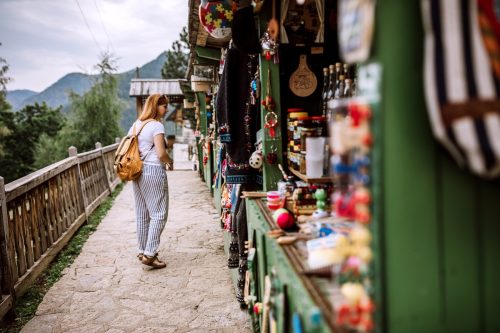
Shoulder season is the time between the high and low tourist periods. You won’t get the cheapest prices like you would when traveling somewhere in their off-season, but that’s probably for the better when you consider that low season usually means the weather isn’t ideal or there is something about the destination that causes tourism to drop.
Nerdwallet studied 100 airfares from popular U.S. routes over eight airlines and found that airfare was around 23% cheaper during shoulder season than peak season. In other research, Nerdwallet found that using mileage to fly was cheaper during off-peak seasons. That research included finding flights reduced from 30,000 miles to 22,500 miles.
4
Plan out when to fly.
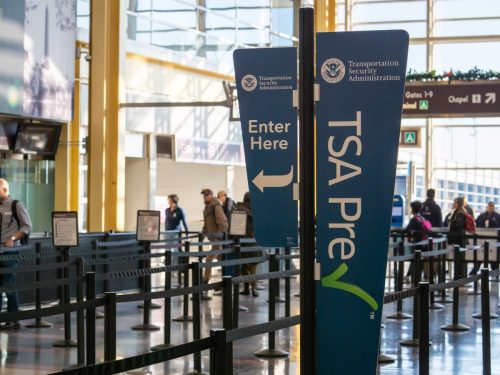
Flying midweek on a Tuesday or Wednesday is not only a cheaper time to fly, it’s often less busy, too. TSA checkpoint numbers frequently show that Tuesdays and Wednesdays nationwide are less busy than any other weekday. If booking a midweek flight, there are better chances for upgrades or seat changes—even last-minute—because they are less likely to be full than flights on Fridays, Mondays, or Thursdays.
READ THIS NEXT: The Best Tourist Attraction in Every State.
5
Have a scan or photo of your passport or I.D. handy.
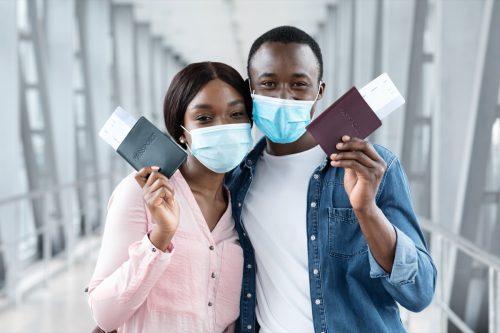
No matter where you are traveling in the world, before you set off, make sure you have a photo or scan of your I.D. just in case something happens. You could lose that identification or have it stolen and, without a photo or scan of your citizenship or residence, it could be much harder to fly home or even check into a hotel. While not ideal, having that documentation could at least get you home.
6
Pack smarter, not harder.
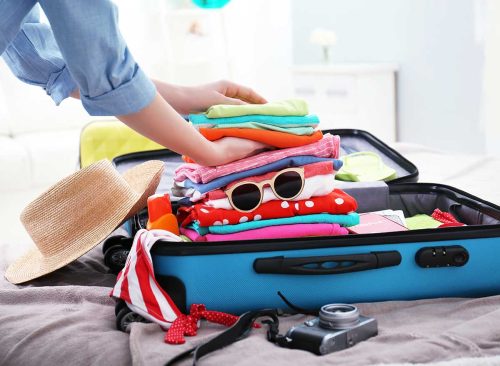
This hack is a personal favorite of mine as a frequent traveler. Using every available nook and cranny of your luggage will keep your things neat, but it will also help you pack a little more without taking up space! Pack your socks inside your shoes, use that hat to hold small things in your suitcase, and if you have a belt to roll, tuck some socks or underwear in the middle of that too! There are a lot of creative ways to use the space you’re already using.
READ THIS NEXT: 9 Secret Travel Hacks Flight Attendants Always Use.
7
Roll, don’t fold your clothes.
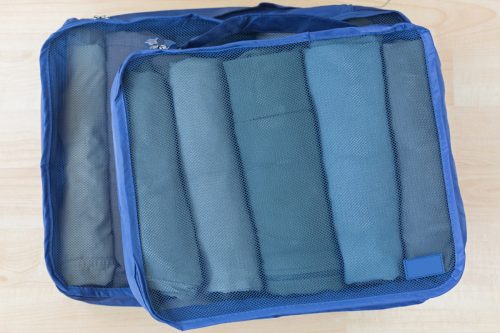
This advice changes a lot depending on who you ask: People tend to be very “Team Roll” or “Team Fold.” In my experience though, rolling is the best way to go. Not only are you saving a lot more space in your suitcase, but you’ll also keep your clothes wrinkle-free if you roll them tightly enough.
Packing cubes are another great alternative as well. If you use them, folding may be more successful than rolling—though that really depends on what you’re packing. Bulky sweaters tend to be bulky… no matter what.
8
Check the room or the front desk before you buy forgotten things.
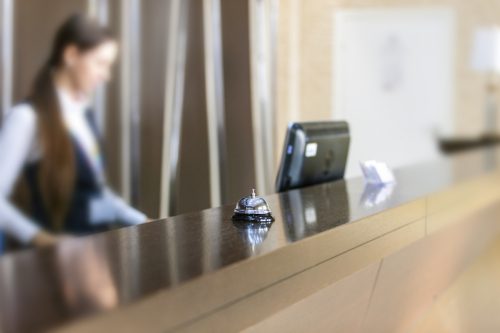
From phone chargers to toothbrushes, we’ve all forgotten something while traveling. For instance, once in Europe, my outlet converter wouldn’t work. Before venturing out to buy one, I asked the front desk if they had any that people left behind or that I could borrow for a few days. They had a whole box of them! It’s often best to ask before spending money on something you might not have needed to.
If you have a charging cable but not the plug, try checking the television or the desk lamps. A lot of televisions now have ports that you can plug into and lamps with built-in chargers are becoming more and more frequent in hotel rooms all over the world.
For more travel tips, check out What You Need to Know Before Going to Mexico Right Now.